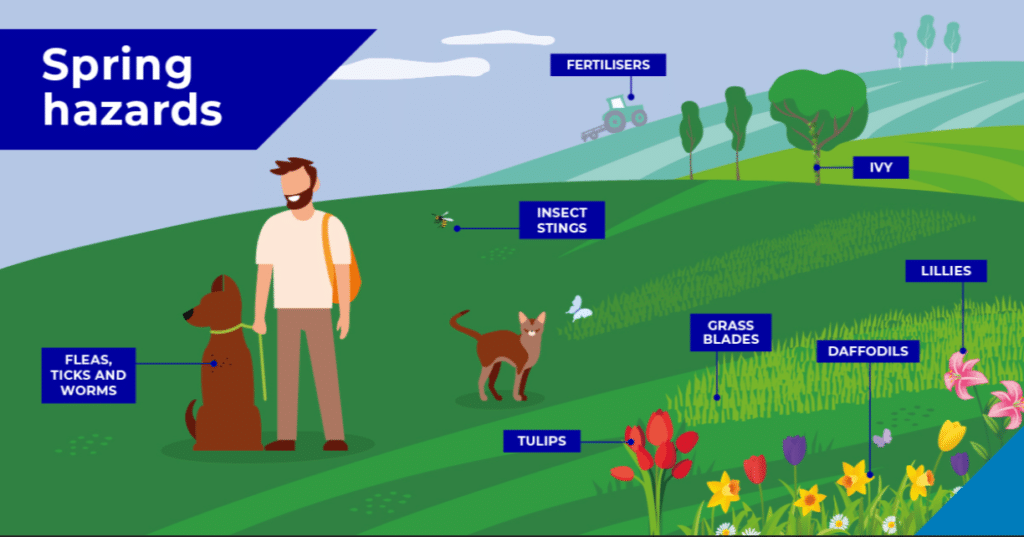Our Internal Medicine team see a number of pets referred to us this time of year who have ingested a natural material out on a walk or something they have found at home!

Common Dog poisons
Slug and snail pellets – metaldehyde poisoning is very serious and requires urgent treatment. Dogs may appear unsteady and twitchy; this could lead into continuous convulsions
Spring flowers – like daffodils and tulips can cause vomiting and diarrhoea

Chocolate – chocolate poisoning is the most commonly reported type of poisoning. Symptoms may include vomiting and diarrhoea , dehydration, hyperactivity, and tremors
Non-steroidal anti-inflammatory drugs – dogs should never be given Ibuprofen; if ingested, symptoms include vomiting and diarrhoea, gut bleeding, stomach ulcers and kidney failure
Rodent poisons – ingestion of rodent poisoning may cause life-threatening internal bleeding, suspected ingestion requires urgent treatment
Common cat poisons
Symptoms of poisoning in cats include: hypersalivation, vomiting, diarrhoea, collapse, twitching or seizures, difficulty breathing, and inflammation or swelling of skin
Common and potentially severe poisons for cats include: paracetamol, lilies, antifreeze (ethylene glycol), spot-on flea treatments that are made for dogs, and snug and snail pellets
What to do
Stay calm!
- Remove the source of poison if safe and possible
- Immediately contact your vet, do not ‘wait and watch’
- Follow your vet’s advice; your pet may need to be seen as an emergency, they may ask you to bring wrappers/packaging/plants with you
- Do not attempt to treat or medicate your pet yourself
- Never attempt to make your pet vomit
- If the skin or fur is contaminated then wash with a mild shampoo such as baby shampoo and rinse well
- Keep your pet away from any other animals in the house
